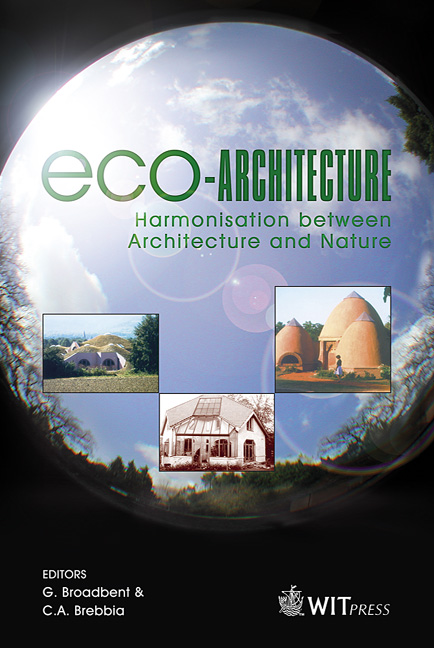Cultural Responses To Primitive Needs
Price
Free (open access)
Transaction
Volume
86
Pages
11
Published
2006
Size
1,096 kb
Paper DOI
10.2495/ARC060011
Copyright
WIT Press
Author(s)
N. Baker
Abstract
This paper proposes that our responses to the environment are influenced in part by our contemporary culture and in part by the genetic background of our primitive survival. Evidence of primitive responses is cited from the fields of thermal comfort, and visual comfort. Strong psychological influences are identified. The need for access and reference to nature in modern life is proposed and the possibilities of other substitutes is explored. Keywords: adaptive, ambience, artificial nature, behaviour, comfort, environment, genetic, primitive, nature, synthetic nature. 1 Introduction Although we spend 95% of our time indoors, we are really outdoor animals. The forces that have selected the genes of contemporary man are found outdoors in the plains, forests and mountains, not in air-conditioned bedrooms and at ergonomically designed workstations. Fifteen generations ago, a period of little consequence in evolutionary terms, most of our ancestors would spend the majority of their waking hours outdoors, and buildings would primarily provide only shelter and security during the hours of darkness. Even when inside, the relatively poor performance of the building meant that the indoor conditions closely tracked the outdoor environment. Furthermore, many of the activities that played a vital role in survival demanded an intimate knowledge of the climate, the weather and the landscape. Agriculture is an obvious example; rainfall, frosts, wind and their interaction with the landscape – shelter, drainage, pests etc, constantly reinforced man’s link with nature. Robert Winston [1] points out that whilst it is commonly accepted that our physical attributes derive from our primitive ancestors, it is less widely
Keywords
adaptive, ambience, artificial nature, behaviour, comfort, environment, genetic, primitive, nature, synthetic nature.





